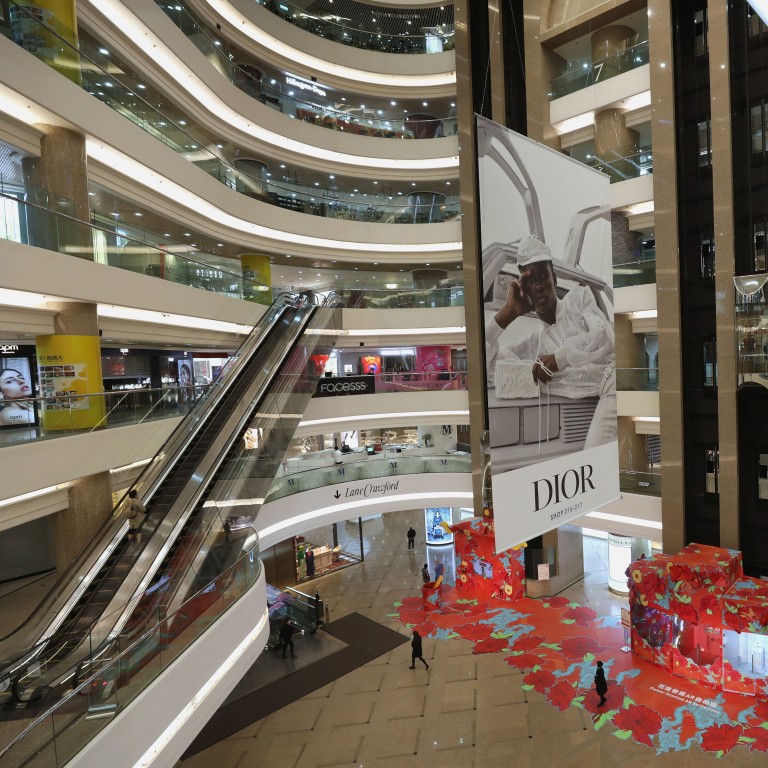
Hong Kong stocks rally, with Wharf REIC jumping nearly 8 per cent and new economy stocks having another good day
- New economy stocks including Tencent, Alibaba and Meituan Dianping climb in Hong Kong
- Sentiment is overall positive, with city’s benchmark having posted back-to-back monthly gains
Hong Kong stocks rallied the most in two weeks on Tuesday, snapping a three-session losing streak as bargain hunters swooped in to pick up virus-battered Hong Kong property giants.
Wharf REIC, the owner of Harbour City and Times Square luxury shopping centres, surged 7.5 per cent after sinking to a record low on Monday. That was its biggest percentage gain in 11 months, according to Bloomberg data.
New economy stocks continued to advance, with Tencent climbing 2 per cent, Alibaba, the e-commerce giant and owner of the South China Morning Post, rising 3.3 per cent and food delivery giant Meituan Dianping jumping 8.7 per cent.
Wharf REIC was the top percentage gainer on the 50-member Hang Seng Index, which finished with a 2 per cent gain at 24,946.63, breaking a three-session losing streak. Overall, sentiment has been positive over the past two months, with gains posted in June and July on building excitement about new IPOs and a new tech board, both of which have attracted money into the city. Still, the benchmark is down about 12 per cent for the year.
“The market sentiment is relatively positive. The biggest risk for the Hong Kong market is still the rebound of local Covid-19 cases,” said Alan Li, portfolio manager at investment management firm Atta Capital.
Other property stocks advancing included Hang Lung Properties, up 4 per cent, and New World Development, up 3.3 per cent.
Investors were betting that local property stocks were oversold, said Louis Tse Ming-kwong, managing director of VC Asset Management.
“There’s an incentive and a good excuse for people to come in, seeing the situation improving, they must as well buy a dip,” he said. “We may not see the end of the tunnel yet, but it very much gave us inspiration and hope that the cases could slow down.”
Kweichow Moutai, the liquor king of China that is one of the most popular stocks traded on the mainland-Hong Kong trading link, rose 0.1 per cent.
Also on the mainland, financial companies such as banks and insurance companies were the big winners as investors bet on the stocks after digesting the decision by Chinese financial regulators to postpone a new rule on asset management in the country by one year to the end of 2021. The Bank of Chengdu surged by the daily cap of 10 per cent. New China Life Insurance added 6 per cent.
More credit support from Beijing to keep jobs and bolster companies also boosted market sentiment in Hong Kong and the mainland, although traders expect a slowdown in stimulus in the rest of this year compared with the first half.
Additional reporting by Deb Price

